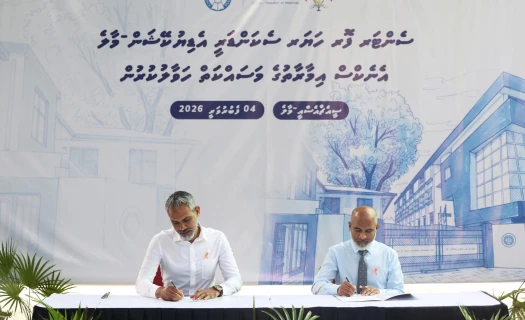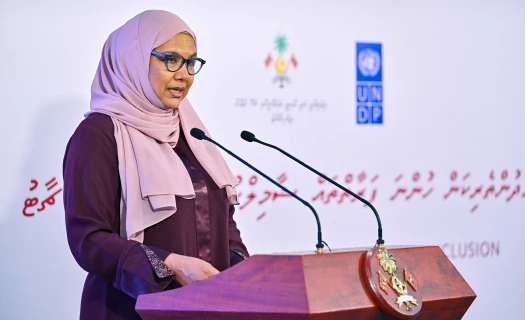Wed, 04 Feb 2026
|DHIVEHI
Paying service charges in Rufiyaa is unjust to resort workers: Qasim Ibrahim
19 Jun 2025
|

Qasim Ibrahim --- Photo: Island Chief
Jumhooree Party leader and prominent businessman Qasim Ibrahim has criticised the decision by some large resorts to pay service charges in Maldivian Rufiyaa, describing the move as unjust and detrimental to employees who earn these payments in US dollars.
Qasim took to X to express concern over reports that several resorts and companies plan to shift service charge payments from US dollars to Rufiyaa, citing operational difficulties. He argued that while the amended Foreign Currency Act permits resorts to exchange a portion of their foreign currency earnings through local banks, this does not justify denying employees their service charges in the original currency in which they were received.
This issue arises at a critical juncture for the Maldivian economy. The country is facing a severe foreign currency shortage, with the black-market rate reported at around MVR 18-19 per dollar, compared to the official rate of MVR 15.42. For resort workers, this gap significantly reduces purchasing power when their dollar earnings are converted at the official rate.
Qasim, who chairs the Villa Group and operates several Category A resorts, noted that service charges are collected from tourists in US dollars and should be paid to employees in the same currency. He added that although the law allows some flexibility in currency exchange, it should not come at the expense of workers’ financial rights.
He further warned that compelling employees to accept service charges in a currency other than US dollars, without their consent, could potentially amount to fraudulent appropriation under Article 212 of the Penal Code. Delivering a trust in its original form to the rightful recipient, he said, is both a legal and moral obligation.
The economic implications of this shift are significant – particularly in an import-dependent economy where access to foreign currency is essential for maintaining living standards, given the country’s heavy reliance on imported essential goods.
Qasim stated that employees who pursue legal action in such cases would likely prevail under existing laws. While acknowledging that his own resorts face operational challenges, he maintained that this does not justify policies that reduce workers’ income. This, he said, was why he felt compelled to publicly voice his concerns.
He also raised concerns over reports of companies considering paying staff salaries in Rufiyaa. Qasim emphasised that if an employment contract specifies payment in US dollars, employers are legally obliged to honour that agreement unless the employee explicitly agrees to a change in currency.
The Foreign Currency Act, ratified by President Dr Mohamed Muizzu in December 2024 and implemented on January 1, 2025, establishes a legal framework for managing foreign exchange transactions in the Maldives. It requires all domestic transactions to be conducted in Rufiyaa and prohibits charging Maldivian nationals for goods or services in foreign currency, except under specific circumstances defined by law.
Under the legislation, tourism establishments are categorised based on their operations. Category A resorts, including private island resorts and integrated tourist developments, are required to exchange either USD 500 per tourist or 20 per cent of their gross monthly foreign currency revenue with local banks. The regulation is intended to enhance access to foreign currency through formal banking channels and reduce reliance on informal markets.
Qasim expressed support for the objectives of the Act, stating that the Government's effort to ease access to dollars and reduce financial hardship was commendable. However, he stressed that implementation must not come at the cost of employees’ earnings and rights.
Tourism is the backbone of the Maldivian economy; hence, every decision influencing it has a national impact. The challenge lies in addressing structural weaknesses while protecting the livelihoods of the workforce that drives the country's major economic engine.








